The success of our Submit Your Film Initiative continued this year in the same pace, as we received more than 80 submissions with a number of filmmakers also submitting their trailers and even their whole movies to feature on our YouTube Channel. Also of note is that for 2022, we received more feature films than the previous years, which is the reason we decided to include a number of them in this list.
In that regard, we would like to thank all the filmmakers who submitted their work and we hope that they continue to do so for many years to come.
At the same time, we also felt the need to celebrate this initiative by listing the movies we considered the best. Without further ado, here are the best #SubmitYourFilm Movies of 2022, in random order. (By clicking on the title, you can read the full review of the film)
1. Can You Love Me Most? (2022) by Feisal Azizuddin (Malaysia)

Deceptively complex and disturbing, “Can You Love me Most?” tells the story of illegal human trafficking through the eyes of a newborn baby. This results in a film that leaves the conversation open-ended about the morality of the process, in a way that leads to some fascinating tangents in its brief runtime of 17 minutes. In addition, it shows the complexity of the situation by touching on social pressure to have kids, along with the prejudice against interracial couples that put Daniel and Mia in a peculiar status as a married couple. (Adam Symchuk)
2. Film Review: Anonymous Gods (2022) by Steven J Martin (Japan)

There is a sense of despair and futility permeating the narrative, like all protagonists know that nothing will go well in the end, or at least eventually realizing it. This aspect induces the movie with a dramatic essence, which is rounded up with a sense of sensualism, mostly deriving from Sarasa, with the combination being rather appealing, even if no sex scenes are actually presented.
3. Party Poster (2022) by Rishi Chandna (India)
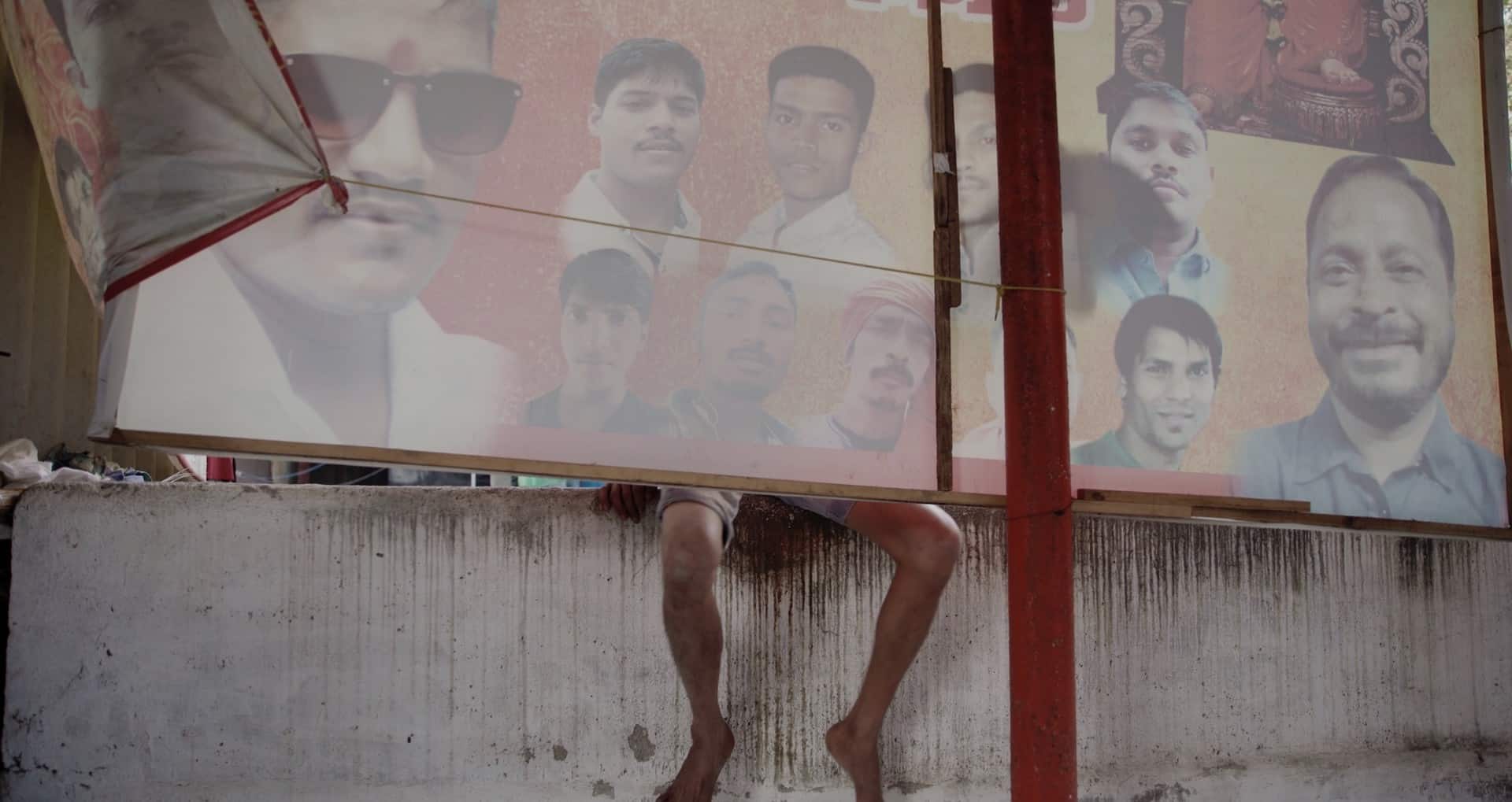
In an approach that reminds much of his previous short, the excellent “Tungrus”, Rishi Chandna presents a film that seems like a documentary in its realism, but at the same time presents a reality so surrealistic, that it might as well be a mockumentary. In that fashion, we watch the three laundrymen, Munna, Rajesh and Prem going about the rather hard labor, which is only interrupted by their plans to create the banner, including a hilarious interaction with the graphic designer, a woman who actually follows the absurd instructions under the “excuse” of the poster also serving a political purpose. Which heads are bigger, how big is the red marking on the forehead and how dark the sunglasses appear are among the instructions, and the result looks as funny and excessive as expected.
4. The Horse From Heaven (2021) by Maharshi Tuhin Kashyap (India)
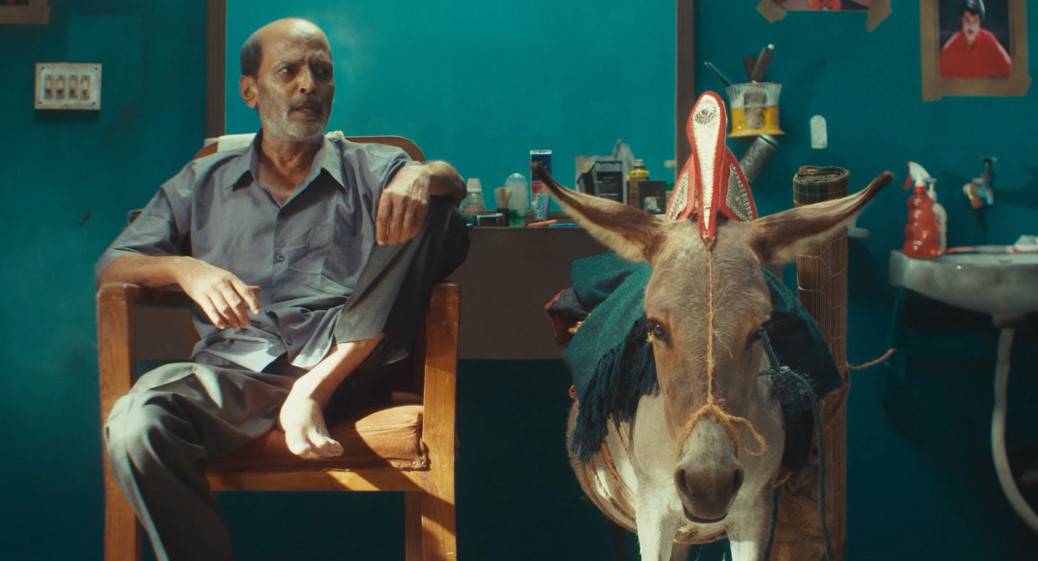
As a fan of both absurdist and darker comedy, “The Horse From Heaven” is one of the more notable comedic shorts I have seen in some time. The production oozes charisma, confidence, and silliness in the perfect mixture to make for an unforgettable watch. If you get a chance to check this one out, you won't be disappointed. (Adam Symchuk)
5. Grey Solar Game (2021) by Seemonta Halder (India)

Seemonta Halder directs a rather bleak film, which, quite eloquently, shows that the changes brought by Covid, but also from greed and the constant expansion of urban settings, are having a rather dire toll on the “lower levels” of society, who find themselves essentially with no way to continue living, as things that could be got for free (from nature) or at least cheaply, are gradually disappearing. The fact that the children seem to know the fact deep down, and have even succumbed to their fate is even worse in this case, with Halder's gaze being rather harsh, but also realistic in its presentation, with the zoom-ins in the eyes of the kids being particularly impactful.
6. Mountain Spirits (2016) by Qiwei Li, Zishan Huang, Yin Fu, Yuxuan Fu (China)
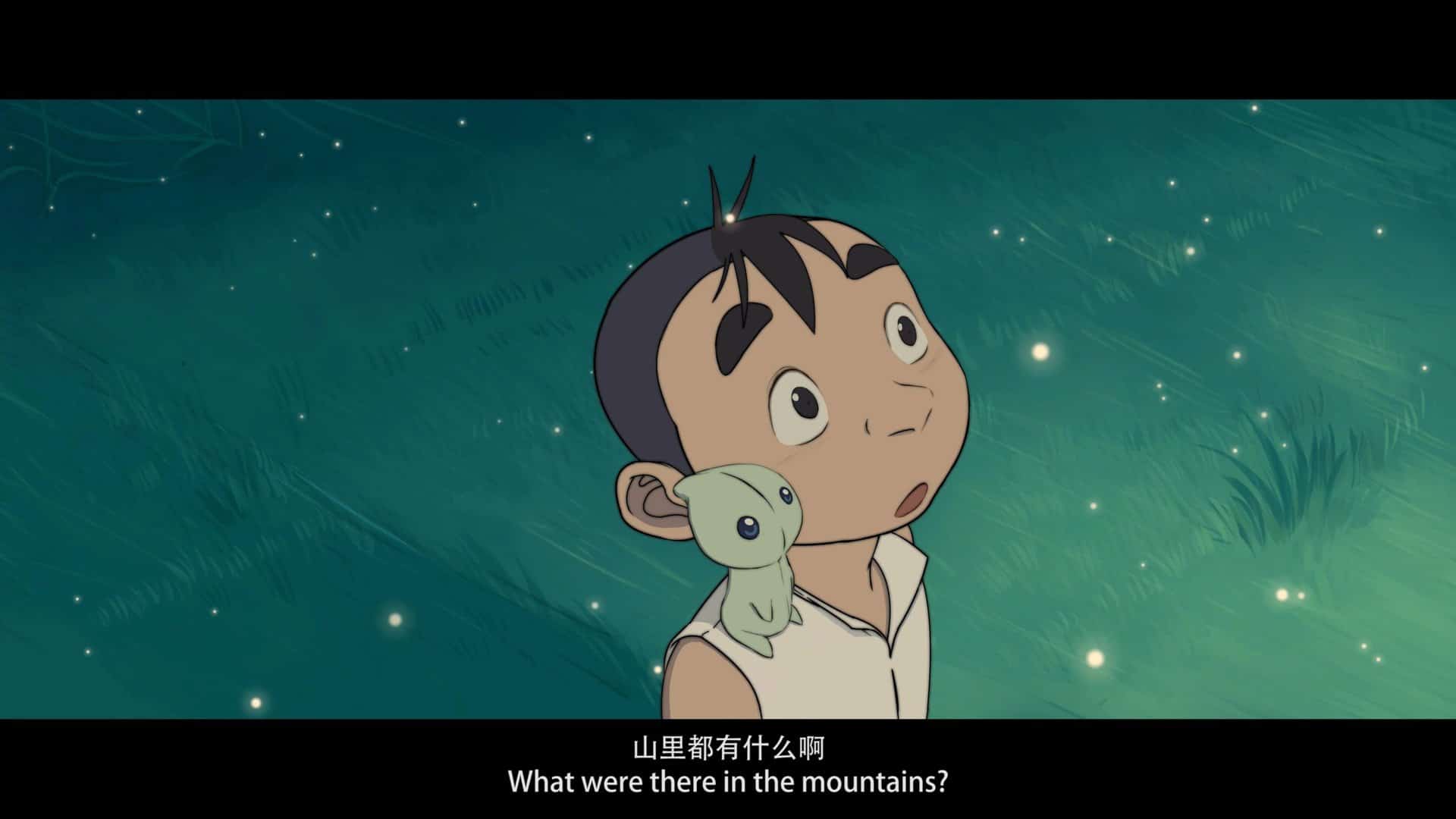
“Mountain Spirits” can be easily described as an ode to nature, with the magical lyricism brought on by the rather appealing creatures working excellently for the narrative, also because it is eventually revealed that a number of other creatures are actually living in the woods. The blooming of the flowers, the way Nan saves the little elf initially, the fireflies around the tree, the dangerous looking cow, and the final goodbye are all quite memorable scenes here, not only for the overall artistry, but also for the emotions they evoke, with the use of music in that regard being excellent.
7. Cycle (2021) by Devashish Makhija (India)
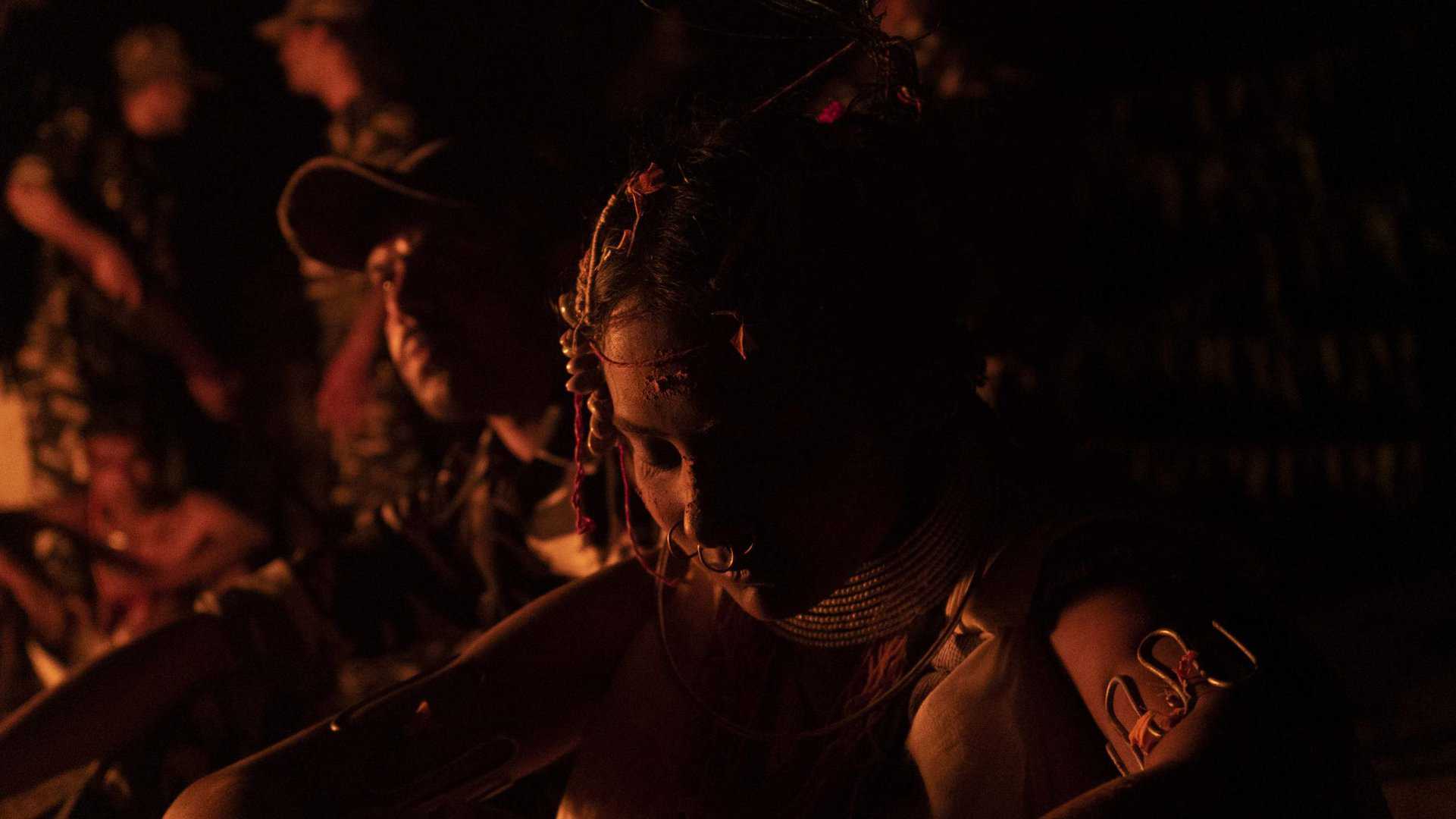
Using violence in order to send an anti-violence message is not exactly an easy thing to do, since hitting the reef of sensualizing such events (as in the case of exploitation movies for example) is quite easy to happen. Devashish Makhija has proven before, however, that he has a knack of using scenes that can only be described as brutal, in order to show where and how violence is created, and thus sending anti-violence messages. And thus he does in “Cycle” also, presenting a comment that states that evil acts are actually symptoms of particular situations, in this case racism against tribal people, and subsequently, revenge, through the consequences of the horrid events depicted in the first segment.
8. JISIM (2021) by Syukri A Rahim (Malaysia)

There are certain short films that can catch you off guard, as it is always a challenge to imbue so much emotion into a story that is brief (18 mins in this case). However, Syukri A Rahim proves he can do just that, figuring out ways to draw an instant emotional connection between the viewer and his subjects. Highly commendable and recommendable, it will be exciting to see how Rahim grows as a director. (Adam Symchuk)
9. Belle Ville (2016) by Jung Won-hee (South Korea)
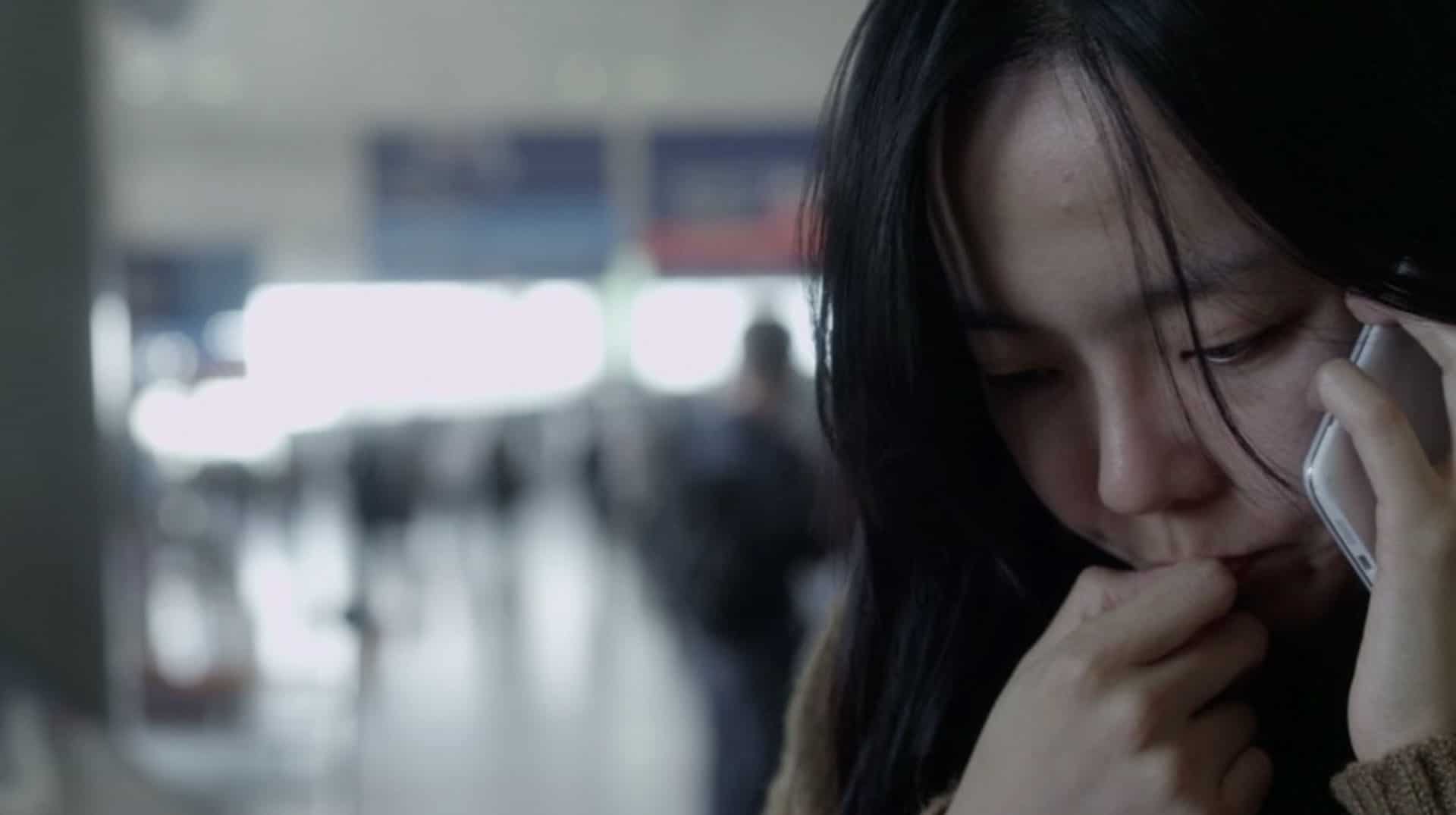
In the 26 minutes of the short, Jung manages to do two things pretty well. The first one is to highlight the difficulties (illegal) immigrants face in a foreign country, with the first scenes showing the boundaries language poses and the later ones how the fact that they depend on others for the majority of their needs can hamper the fulfillment of any kind of wishes they have. The second one is to create an atmosphere of tension and angst that borders on the horrific after a fashion, with the despair that takes over Yeon-hwa after a point being palpable and rather entertaining in its presentation, essentially carrying the movie from beginning to end. That this aspect results from realistic premises also adds to the overall atmosphere and approach of the film, while that Jung has included some notions that show that not everything in the lives of immigrants is bad, since a level of comradership and help to each other does exist, also moves into the same, real-life path. One could say that there is some prejudice here, since it seems that all the men in Yeon-hwa's life treat her well, while the only woman is essentially the “villain” of the story, but even this aspect is naturally embedded in the narrative, and does not look forced or excessive at all.
10. Visitors (2021) by Kenichi Ugana (Japan)

Kenichi Ugana “plays” with two aspects. The first one focuses on hikikomori, with Sota acting like an archetypical one, in a fashion, though, that is the main source of comedy in the short, as his disconnect from what is happening around him is actually hilarious, particularly in way Ugana uses his presence for jump-scares. The second is the survival horror one, with the director building the terror gradually, first solely through sound, and then through both sound and image, as the movie takes a rather bloody, but also absurd and still funny turn.


















